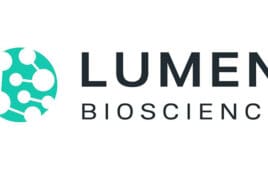 French vaccine company Valneva SE (Nasdaq:VALN; Euronext Paris:VLA) is hoping to change the European Commission’s (EC) mind after regulators notified the firm that they intend to terminate an Advance Purchase Agreement (APA) for its inactivated whole-virus COVID-19 vaccine candidate VLA2001.
French vaccine company Valneva SE (Nasdaq:VALN; Euronext Paris:VLA) is hoping to change the European Commission’s (EC) mind after regulators notified the firm that they intend to terminate an Advance Purchase Agreement (APA) for its inactivated whole-virus COVID-19 vaccine candidate VLA2001.
VALN shares fell 15% to $20.00.
In February, Valneva announced that it expected authorization for the vaccine in the European Union in April. Regulators from the Committee for Medicinal Products for Human Use (CHMP) of the European Medicines Agency (EMA) had sent the company several questions about the vaccine candidate. Valneva said then that it swiftly answered them.
EMA accepted the filing of the Marketing Authorization Application on May 19.
After the European Commission received Valneva’s remediation plan, Valneva hopes to have further discussions with regulators interested in its inactivated, adjuvanted whole-virus vaccine.
Valneva indicated that preliminary, unofficial volume indications from the European Commission would be financially infeasible, likely resulting in the firm agreeing to terminate the order and scrapping its COVID-19 vaccine program entirely.
The prior agreement with regulators in Brussels covered up to 60 million vaccine doses over two years.
“We hope that the EC and its member states will continue to evaluate the potential advantages of an inactivated vaccine,” said Thomas Lingelbach, CEO of Valneva, in a statement. “There is emerging evidence that hybrid immunity – from a combination of vaccination and natural infection – increases protection against development of severe COVID-19 caused by different variants of concern, and our inactivated vaccine closely mimics natural infection by exposing vaccinees to the entire inactivated SARS-CoV-2 virus.”
The company also notes six European countries have indicated an interest in an inactivated COVID-19 vaccine. “We continue to receive messages from people looking for a more traditional vaccine technology, and we hope to receive a meaningful order size to further support public health in Europe,” Lingelbach added.
Filed Under: Infectious Disease





Tell Us What You Think!
You must be logged in to post a comment.